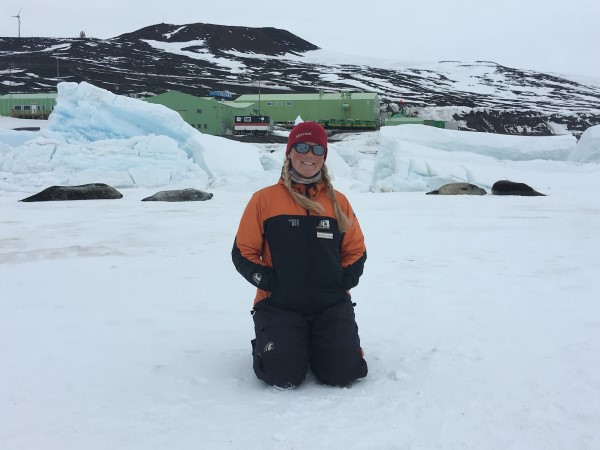Ximena Bernal, Purdue University, USA, and Michelle LaRue, University of Canterbury, New Zealand, join the editorial board of Proceedings B

We are pleased to welcome all new Associate Editors starting their terms to the Proceedings B editorial board in 2021. We recently asked two new Associate Editors Michelle LaRue (University of Canterbury, New Zealand) and Ximena Bernal (Purdue University, USA) about their backgrounds, current research and their motivation behind joining the journal’s editorial board.
Michelle LaRue

I am a Senior Lecturer of Antarctic Marine Ecology at the University of Canterbury in Christchurch New Zealand, and a Research Associate at the University of Minnesota, USA. My interests are in applying GIS and remote sensing as tools to study the habitat, biogeography and effects of change on marine predators in the Southern Ocean, as well as large carnivores in North America. With a focus on understanding population and community dynamics at multiple spatial scales, I have spent eight field seasons in Antarctica, and am passionate about bringing those experiences to the public through science communication. I have a B.S. in Ecology from Minnesota State University Mankato, an M.S. in Zoology from Southern Illinois University Carbondale and a PhD in Conservation Biology from University of Minnesota. I am excited to join the editorial board at Proceedings of the Royal Society B, to gain insight to “the other side” of the publication process, to help advance and promote excellent scientific research, and of course, to become a better writer and editor. I also look forward to collaborating with the editorial team and working with researchers around the world.
Ximena Bernal

I am a frog lover and science enthusiast that is an Associate Professor at Purdue University and Research Associate at the Smithsonian Tropical Research Institute. My research interests lie at the interface between behaviour, ecology and evolution. In my lab our research is centred in understanding communication in frogs and the enemies that eavesdrop on their signals. Given than frogs produce highly conspicuous signals to attract mates, predators and parasites often exploit their mating signals. We address how those eavesdroppers shape anuran communication systems but also how frog signals, in turn, affect eavesdroppers. We are interested in understanding the multiple players and complex interactions that are involved in communication networks. Among that complexity, we study the effect of novel selective pressures imposed by anthropogenic changes and how those affect frogs, their enemies, and ultimately influence their communication system. We approach those topics integrating bioacoustics, neuroethology, and behavioural ecology.
Why have I joined the editorial board? I could tell you about the impressive breadth and impact of this journal but, while those are important factors, the real reason I joined the editorial board is more basic: I have long been a big fan of Proceedings B. We all have a journal that we follow closely and dream about publishing there. Proceedings B was that journal for me as a graduate student. I remember the excitement when I had one of my dissertation chapters accepted in this journal and later on, when I was first invited to review for it. Throughout all those years, I have been impressed by their fair treatment of manuscripts and how this journal promotes robust science that is further improved during the peer review process. I knew I wanted to be part of and support this effort!
Proceedings B is looking to publish more high-quality research articles and reviews in the fields of ecology and evolution. If you have an idea for a review, we strongly encourage you to submit a proposal. Find out more about the submission process.
Image Credits
Michelle La Rue by Lucy Howell
Ximena Bernal by Mark Simons



